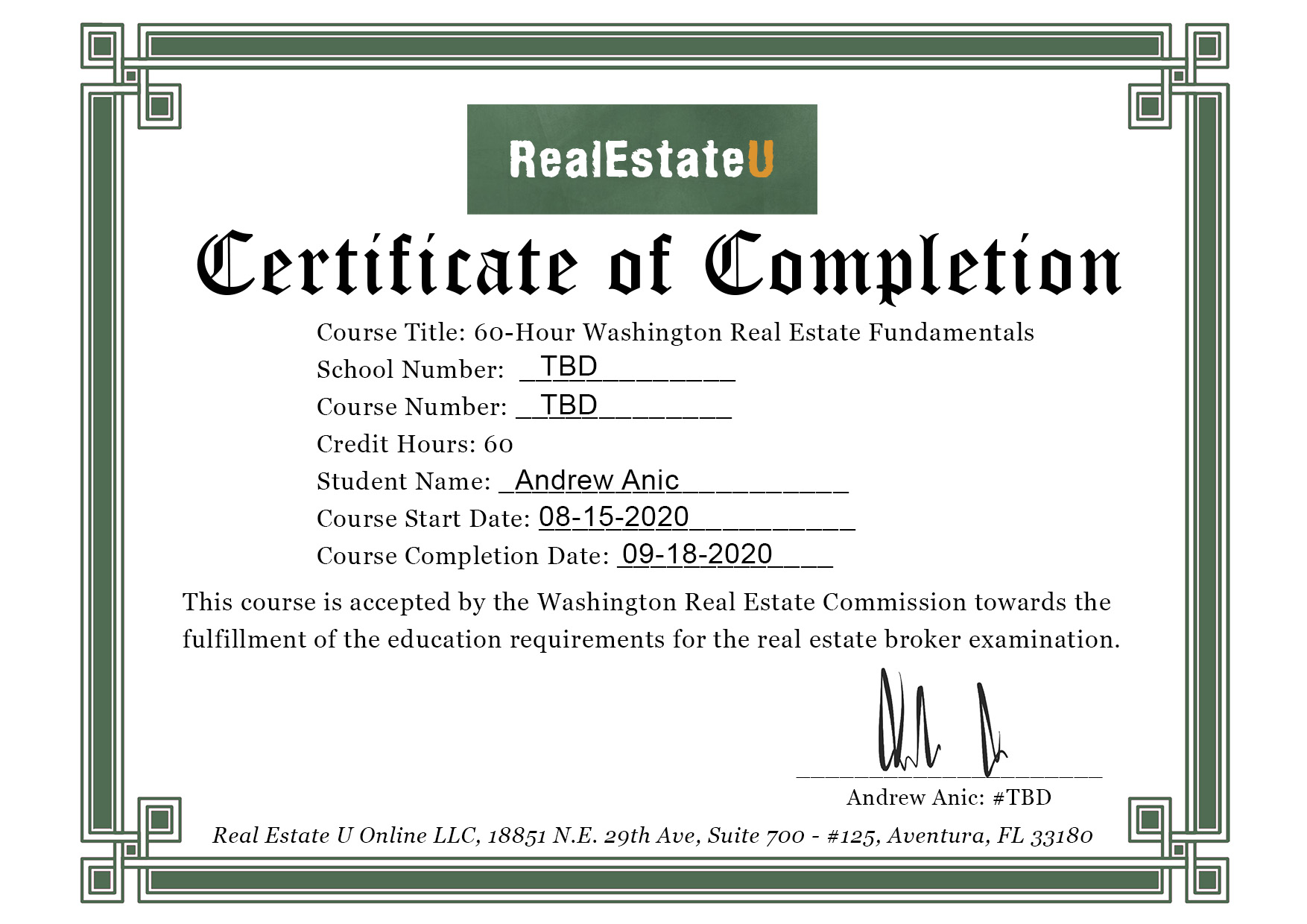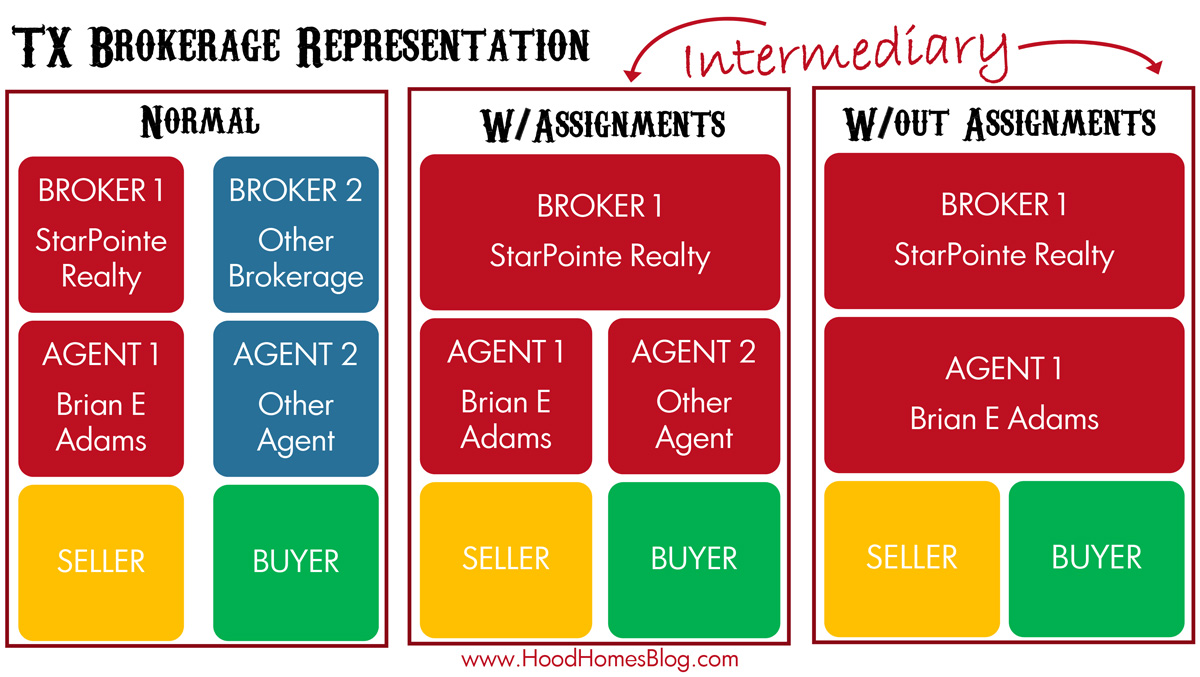
TREC classes can help real estate agents who are interested in becoming licensed to sell farm and ranch property. The program will teach students about legal descriptions, title to real-estate, and closing procedures. Students will also be taught how to manage wind and water rights and assess environmental sites.
The Texas Real Estate Commission oversees TREC. It is responsible for setting standards and guidelines in Texas for the real-estate industry. It is responsible for granting licenses and also regulates education providers and licensing practices. A licensed real estate agent is required to complete 18 hours of continuing education (CE) credit every two years. Additionally, licensees with supervisors must complete a six-hour Broker Responsibility Course.
There are two types CE courses: elective or qualifying. Elective courses are offered in 30-hour increments. Qualifying classes are taught by educators. To obtain an initial license, an agent must have completed at least 180 hours of qualifying coursework. This includes the Ethics of Practice course, which requires at least three classroom hours of instruction on housing discrimination. Other qualifying courses include an overview of a real estate sales agent's duties and responsibilities, titles to real estate, and appraisal.

A student can take the TREC Real estate salesperson license exam after completing a qualifying course. The exam is based on the knowledge of a specific portion of the course. If the student fails to pass, he or she will be denied a license. Before completing the program, applicants may be required to submit a criminal background check.
Currently, Erie County Community College is partnering with four instructional sites. This is due to the number of applicants they receive. According to the college president, 25 applications a day are received. He said that officials are working hard to accommodate the needs of students entering college and are near to deciding the location for the Bridges program.
All education providers involved in the TREC program must follow the same curriculum guidelines. These rules were established to ensure that all TREC program participants receive the same level of instruction.
When taking TREC classes, students are expected to use a webcam or video feed to interact with the instructor. TREC requires that class attendees confirm their identity, which is done by using a two-way video feed. Before renewing their license, students must complete a renewal question form. Once a license has been renewed, it can be renewed online. Before the license expires, the user must pay a renewal fee and provide proof of training.

A variety of online CE and SAE courses are offered by the TREC. TREC offers several elective courses as well as the TREC CORE essential course. Both are delivered in a live broadcast and Online-Correspondence delivery method. Students must submit certificates of completion to Texas Real Estate Commission after they have completed the course.
TREC-approved courses are eligible for the 18-hour CE requirement to renew. TREC's website offers a filter to assist in locating approved courses. These courses may be combined for discounts.
FAQ
How can I get rid Termites & Other Pests?
Termites and other pests will eat away at your home over time. They can cause severe damage to wooden structures, such as decks and furniture. You can prevent this by hiring a professional pest control company that will inspect your home on a regular basis.
What flood insurance do I need?
Flood Insurance protects you from flooding damage. Flood insurance helps protect your belongings and your mortgage payments. Find out more information on flood insurance.
Should I rent or own a condo?
Renting might be an option if your condo is only for a brief period. Renting allows you to avoid paying maintenance fees and other monthly charges. The condo you buy gives you the right to use the unit. The space is yours to use as you please.
What is a reverse loan?
Reverse mortgages are a way to borrow funds from your home, without having any equity. You can draw money from your home equity, while you live in the property. There are two types to choose from: government-insured or conventional. Conventional reverse mortgages require you to repay the loan amount plus an origination charge. If you choose FHA insurance, the repayment is covered by the federal government.
What are the advantages of a fixed rate mortgage?
With a fixed-rate mortgage, you lock in the interest rate for the life of the loan. This will ensure that there are no rising interest rates. Fixed-rate loans offer lower payments due to the fact that they're locked for a fixed term.
What should you look out for when investing in real-estate?
The first thing to do is ensure you have enough money to invest in real estate. If you don't have any money saved up for this purpose, you need to borrow from a bank or other financial institution. It is also important to ensure that you do not get into debt. You may find yourself in defaulting on your loan.
It is also important to know how much money you can afford each month for an investment property. This amount must include all expenses associated with owning the property such as mortgage payments, insurance, maintenance, and taxes.
Finally, you must ensure that the area where you want to buy an investment property is safe. It is best to live elsewhere while you look at properties.
Statistics
- When it came to buying a home in 2015, experts predicted that mortgage rates would surpass five percent, yet interest rates remained below four percent. (fortunebuilders.com)
- Some experts hypothesize that rates will hit five percent by the second half of 2018, but there has been no official confirmation one way or the other. (fortunebuilders.com)
- Over the past year, mortgage rates have hovered between 3.9 and 4.5 percent—a less significant increase. (fortunebuilders.com)
- It's possible to get approved for an FHA loan with a credit score as low as 580 and a down payment of 3.5% or a credit score as low as 500 and a 10% down payment.5 Specialty mortgage loans are loans that don't fit into the conventional or FHA loan categories. (investopedia.com)
- Based on your credit scores and other financial details, your lender offers you a 3.5% interest rate on loan. (investopedia.com)
External Links
How To
How to Locate Houses for Rent
People who are looking to move to new areas will find it difficult to find houses to rent. Finding the perfect house can take time. There are many factors that can influence your decision-making process in choosing a home. These factors include location, size and number of rooms as well as amenities and price range.
We recommend you begin looking for properties as soon as possible to ensure you get the best deal. Consider asking family, friends, landlords, agents and property managers for their recommendations. This way, you'll have plenty of options to choose from.